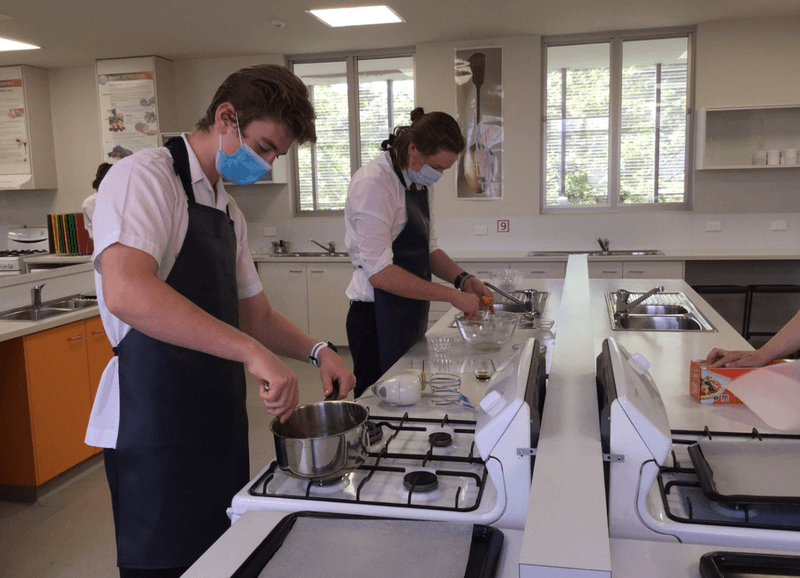Health and wellbeing is essential for all of us. It helps us to live a productive and fulfilled life. It is important for both individuals and communities to experience the highest level of health and wellbeing possible to live their best lives. In order to achieve this, we must understand factors that impact health. By addressing these, it is possible for us to work together to develop knowledge and skills and empower people to take control of their health.
Students examine the impact of social, economic, and environmental factors on health and wellbeing. Students explore similarities and differences in health issues faced by low income countries compared to high income countries, as well as ways to address these issues. This subject also focuses on sustainability and sustainable human development. This underpins the content of Health and Human Development.
Understanding health and wellbeing
In this unit, students explore health and wellbeing as a concept with varied and evolving perspectives and definitions. They come to understand that it occurs in many contexts and is subject to a wide range of interpretations, with different meanings for different people. As a foundation to their understanding of health, students investigate the World Health Organization’s (WHO) definition and other interpretations. They also explore the fundamental conditions required for health as stated by the WHO, which provide a social justice lens for exploring health inequities.
In this unit, students identify perspectives relating to health and wellbeing, and inquire into factors that influence health attitudes, beliefs and practices, including among Aboriginal and Torres Strait Islander Peoples. Students look at multiple dimensions of health and wellbeing, the complex interplay of influences on health outcomes and the indicators used to measure and evaluate health status. With a focus on youth, the unit equips students to consider their own health as individuals and as a cohort. They build health literacy by interpreting and using data in a research investigation into one youth health focus area, and by investigating the role of food.
Managing health and development
In this unit, students investigate transitions in health and wellbeing, and human development, from lifespan and societal perspectives. They explore the changes and expectations that are integral to the progression from youth to adulthood. Students apply health literacy skills through an examination of adulthood as a time of increasing independence and responsibility, involving the establishment of long-term relationships, possible considerations of parenthood and management of health-related milestones and changes.
Students explore health literacy through an investigation of the Australian healthcare system from the perspective of youth and analyse health information. They investigate the challenges and opportunities presented by digital media and consider issues surrounding the use of health data and access to quality health care.
Australia’s health in a global world
In this unit, students look at health and wellbeing, disease and illness as being multidimensional, dynamic and subject to different interpretations and contexts. They explore health and wellbeing as a global concept and take a broader approach to inquiry. Students consider the benefits of optimal health and wellbeing and its importance as an individual and a collective resource. They extend this to health as a universal right, analysing and evaluating variations in the health status of Australians.
Students focus on health promotion and improvements in population health over time. Through researching health improvements and evaluating successful programs, they explore various public health approaches and the interdependence of different models. While the emphasis is on the Australian health system, the progression of change in public health approaches should be seen within a global context.
Health and human development in a global context
In this unit, students examine health and human development in a global context. They use data to investigate health status and human development in different countries, exploring factors that contribute to health inequalities between and within countries, including the physical, social and economic conditions in which people live. Students build their understanding of health in a global context through examining changes in health status over time and studying the key concept of sustainability. They consider the health implications of increased globalisation and worldwide trends relating to climate change, digital technologies, world trade, tourism, conflict and the mass movement of people.
Students consider global action to improve health and human development, focusing on the United Nations’ (UN’s) Sustainable Development Goals (SDGs) and the goal and objectives of the World Health Organization (WHO). They also investigate the role of non-government organisations and Australia’s overseas aid program. Students evaluate the effectiveness of health initiatives and programs in a global context and reflect on their own capacity to act.

Selection advice
What kind of learner is best suited to study this subject?
This subject relates to everyday life and will equip students with knowledge and skills to make positive health decisions. Those who find it easier to engage in learning that has a clear application to their life will enjoy this subject. Students will also gain a better understanding of health-related challenges and actions that can be taken to overcome these.
What key skills are required for success?
The ability to apply knowledge, and to analyse and interpret data and case studies that inform us about health and wellbeing. Students need to be able to show an understanding of how concepts of health and wellbeing are connected and impact one another. Consistent revision of content and terminology is also required.
What are three most engaging topics studied?
Unit 1 & 2:
- Health issues that relate to youth
- Healthy and respectful relationships
- Nutrition and tactics used in the marketing of food and food trends
Unit 3 & 4:
- Australia’s health system
- Road safety health promotion initiatives
- Factors that impact the health and wellbeing of low-, middle-, and high-income countries.
What are the learning activities in this subject like?
Research, data analysis, media analysis, concept mapping, critical thinking and communication, application tasks, quizlets.
What advice would you give to a student about to embark on this subject?
A positive attitude is essential for success in Health and Human Development. Approach the subject with an open mind, a willingness to learn, and a commitment to give your best effort. It is suggested that students keep up to date with smaller incremental tasks with a regular study routine. Keep detailed organised notes on the different Key Knowledge areas of each topic and complete as many practice questions as possible before assessment tasks.

Student Voice
I enjoyed studying Health and Human Development in VCE as you explore the ways in which health outcomes and quality of life can be maximized to benefit individuals, nations, and the globe. Health requires you to learn a lot of content, but it is interesting, and can be practically applied. In this subject I found that being consistent in my effort and application to learning was rewarded with success/achievement.
Logan Ridoutt
Studies in VCE Health and Human Developmentcan lead to study and career options in the following areas:
Age carer, Ambulance officer, Paramedic, Childcare worker, Child/Youth residential carer, Chiropractor, Dental assistant, Dietitian, Enrolled nurse, Registered nurse, General medical practitioner, Health promotion officer, Medical imaging professional, Medical receptionist,
Naturopath, Acupuncturist, Nursing aide, Nutritionist, Occupational therapist, Personal care assistant, Physiotherapist, Podiatrist, Specialised medical practitioner, Youth worker, Speech pathologist, Health policy maker, Public health official.




